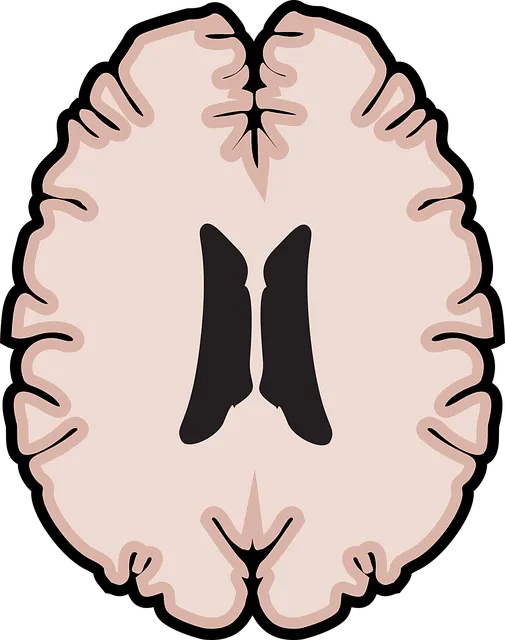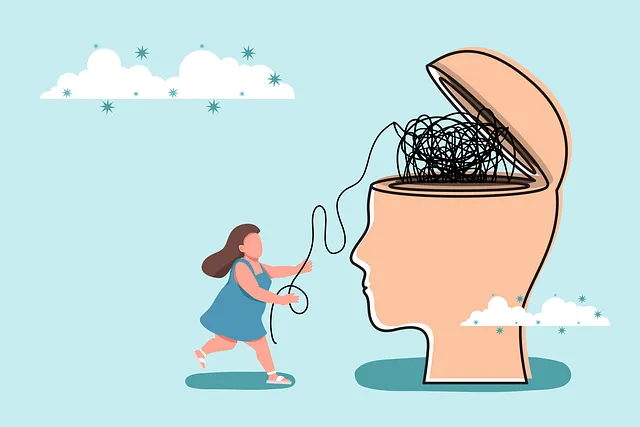Mental health policies, like those shaping services via Kaiser in Lone Tree, are complex but crucial for emotional healing and resilience building. Understanding legislation, guidelines, and procedural pathways is essential to navigate these services effectively. Advocacy plays a key role in transforming mental health care by addressing systemic issues and promoting culturally sensitive practices. By analyzing strengths and gaps in care delivery, advocates can improve outreach programs, access to specialized treatments, and resource allocation for evidence-based interventions. This holistic approach ensures comprehensive support for diverse populations, incorporating cultural sensitivity, privacy protections, and integration with primary care systems. Learning how to access Kaiser's mental health services in Lone Tree is vital for a more informed and supportive community.
Mental health policy advocacy plays a pivotal role in shaping communities’ well-being, especially in areas like Lone Tree, where access to quality care can be challenging. This article offers a comprehensive analysis of mental health policy and its impact on service delivery. We explore a framework for understanding these policies and the power of advocacy in driving change. Specifically, we delve into strategies to enhance access to mental health services through Kaiser for the Lone Tree community, providing insights on how to navigate systems for better care.
- Understanding Mental Health Policy: A Framework for Analysis
- The Role of Advocacy in Shaping Mental Health Services
- Navigating Kaiser's System: Unlocking Access to Care for the Lone Tree Community
- Strategies for Effective Mental Health Policy Change and Advocacy
Understanding Mental Health Policy: A Framework for Analysis

Mental health policies are intricate frameworks that shape the availability and accessibility of services for individuals seeking emotional healing processes and resilience building. Understanding these policies is paramount in navigating how to get mental health services through Kaiser or similar providers. Analysis involves scrutinizing legislation, guidelines, and procedural pathways to identify strengths and gaps in care delivery. By evaluating these aspects, advocates can pinpoint areas needing improvement, whether it’s enhancing outreach programs, streamlining access to specialized treatments, or allocating adequate resources for evidence-based interventions.
This framework encourages a comprehensive look at mental health policy, considering not just the availability of services but also the effectiveness of Stress Reduction Methods in diverse populations. It involves analyzing cultural sensitivity, privacy protections, and integration with primary care systems to ensure holistic support. Understanding these intricacies is pivotal for both policymakers and advocates seeking to create equitable access points for essential mental health services.
The Role of Advocacy in Shaping Mental Health Services

Advocacy plays a pivotal role in shaping mental health services and ensuring that individuals have access to effective and culturally sensitive care. It acts as a catalyst for change, addressing systemic barriers and advocating for policies that promote mental well-being. In the context of Lone Tree, understanding how to navigate Kaiser’s offerings in mental health services is essential. Many people may not be aware of the resources available to them, which highlights the need for advocacy to raise awareness and dispel misconceptions.
Through advocacy, organizations and communities can push for improved access to mental health professionals, especially those with cultural sensitivity training, who understand the nuances of various populations. This includes promoting Self-Awareness Exercises that foster emotional regulation skills, ensuring individuals have the tools to manage their mental health effectively. By advocating for policy changes, we can create a more inclusive and responsive mental healthcare system that caters to diverse needs, ultimately improving overall mental health outcomes.
Navigating Kaiser's System: Unlocking Access to Care for the Lone Tree Community

The journey towards enhancing mental health services for the Lone Tree community involves navigating complex systems, particularly when it comes to access through major healthcare providers like Kaiser. Many in this area often wonder, how to get mental health services through Kaiser? The process can be labyrinthine, but with dedicated advocacy and policy analysis, barriers can be broken down. Mental Health Policy Analysis and Advocacy plays a crucial role in ensuring that resources are allocated effectively and that communities like Lone Tree have access to comprehensive care.
One effective strategy is to leverage the power of Mental Wellness Journaling Exercise Guidance, which not only promotes individual mental wellness but also provides insights into community needs. By collecting data through these exercises, advocates can better inform decisions regarding the development of Mental Wellness Coaching Programs. This collaborative approach ensures that services are tailored to the unique challenges faced by Lone Tree residents, fostering a more inclusive and supportive environment for mental health care.
Strategies for Effective Mental Health Policy Change and Advocacy

Effective mental health policy change and advocacy require a multi-faceted approach. One key strategy is to engage diverse stakeholders, including individuals with lived experience, healthcare providers, researchers, and policymakers. By fostering collaboration and sharing knowledge, advocates can build a strong foundation for evidence-based policy reforms. For instance, organizations like Kaiser can play a pivotal role in promoting access to mental health services through their comprehensive insurance plans, ensuring that resources are readily available for those in need, particularly in underserved communities.
Additionally, incorporating Burnout Prevention Strategies for Healthcare Providers and Self-Care Practices into policy discussions is essential. Emphasizing emotional regulation and work-life balance among healthcare professionals not only benefits their well-being but also improves the quality of mental health care they provide. This holistic approach ensures that advocates are not just addressing symptoms but implementing sustainable solutions to create a more resilient and supportive mental health ecosystem, ultimately reflecting how to get mental health services through Kaiser effectively.
Mental health policy analysis and advocacy are vital tools in ensuring accessible and quality care, especially for underserved communities like Lone Tree. By understanding the framework of mental health policies and leveraging advocacy strategies, it is possible to navigate complex systems like Kaiser and unlock essential resources. The case study presented here highlights successful approaches to promote change, emphasizing the importance of community engagement and collaboration with healthcare providers. For the residents of Lone Tree seeking mental health services through Kaiser, these insights offer a roadmap to navigating the system effectively and accessing the care they deserve.






